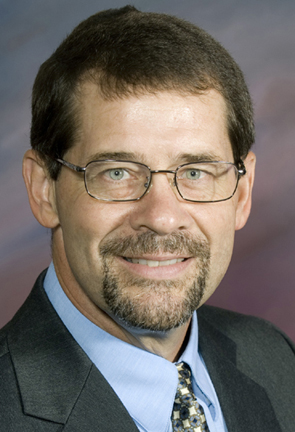
NASHVILLE (BP) — The first time I ever visited an African community devastated by HIV/AIDS, I vividly remember meeting people whose lives had been changed forever.
I met mothers living with AIDS and trying to survive long enough to see their children reach adulthood, able to care for themselves. I visited several homes where the head of the household was the oldest living child. At 14 or 15 years of age, the eldest was responsible for raising four younger siblings after the mother and father as well as both sets of grandparents had succumbed to AIDS.
I distinctly remember visiting long-abandoned homes and seeing a row of simple marked graves in what had been the family vegetable garden, a last testament to the family who once lived there.
But I also remember seeing signs of hope and gratefulness from most of the survivors who were beneficiaries of affordable anti-retroviral drugs (ARVs) along with good, nutritious food provided by generous, concerned people. It was hard to see the devastation in the communities I visited, but it was encouraging to see people working together — governments, international aid and nonprofits — to help people in their deepest need.
Seeing this suffering firsthand and the potential impact of well-designed aid programs only deepened my conviction that people of faith must support action for those most vulnerable to disease.
The U.S. has led extraordinary action to do exactly that. Significant improvements in combatting malaria, tuberculosis and HIV in sub-Saharan Africa and worldwide is due, in large part, to President George W. Bush’s determination to act on behalf of the health of women and children. In 2002, President Bush helped launch the Global Fund to Fight AIDS, Tuberculosis and Malaria, a public-private partnership that finances programs in more than 135 countries, closely coordinating with U.S. programs such as the President’s Emergency Plan for AIDS Relief (PEPFAR) and the President’s Malaria Initiative (PMI), which he also launched.
Since then, these programs have helped to save millions of lives. AIDS-related deaths have been nearly cut in half since 2005. Effective TB diagnosis and treatment have saved 49 million lives since 2000. Malaria death rates were reduced by 62 percent from 2000 to 2015. These successes came with strong bipartisan support from multiple White House administrations and Congress. And they were achieved with U.S. support that represents a mere sliver of our budget — in fact, global health investments make up just one-quarter of 1 percent of the U.S. budget.
Just as important, U.S. investment in the Global Fund encourages other nations to step up to the plate and share the burden of fighting deadly diseases. By design, because Congress limits the U.S. portion to one-third of the fund’s budget, the more generous the U.S. is as a donor to the Global Fund, the more we leverage investments by other countries, private sector companies and philanthropies. The result over the last 15 years is that Global Fund-supported programs have saved 22 million lives, put 11 million people on anti-retroviral treatment for HIV, treated 17.4 million people for TB, and distributed 795 million bed nets to prevent malaria.
I was pleased to see Congress’ recent decision to sustain U.S. investment in the fight against HIV, TB and malaria despite White House proposals for deep cuts. Nothing should get in the way of initiatives that actually work to save lives, and these programs do so efficiently and transparently.
But addressing deadly diseases isn’t pure altruism. When we save people’s lives abroad, allowing them to thrive and reach their God-given potential, it benefits Americans as well. By stopping epidemics before they reach our territory and strengthening communities abroad that buy U.S. goods, we are helping to protect our own health and support American prosperity.
There has been great progress, but much is still left to do. The sooner we act to end these epidemics, the better, as they become more expensive and complicated to treat over time. In many regions of the developing world, especially Africa, young populations are growing rapidly. Without creative action, this population surge will accelerate the spread of disease.
U.S. funding for these important programs has been spared cuts for now, but planning for next year’s budget process already is underway. Our elected officials must know that their constituents support lifesaving global health programs.
As a follower of Jesus, I believe in His call to help the most vulnerable, especially the poor and sick, as He did in His miraculous life. Helping a mother live long enough to see her children grow up is a precious gift. Providing the medicines and nutrition to children living with HIV so they don’t develop full-blown AIDS is the Christ-like thing to do.
Given the children and adults I’ve met and those in countless other places who are ravaged by disease and robbed of their chance to flourish, I encourage the people of America to speak up. Despite these fractious times, we must urge leaders to back global health programs, cheer them when they do, and hold them accountable if they don’t.
If people suggest America cannot afford the expense, the opposite is true: We cannot afford to limit programs which work effectively to save precious lives.

















